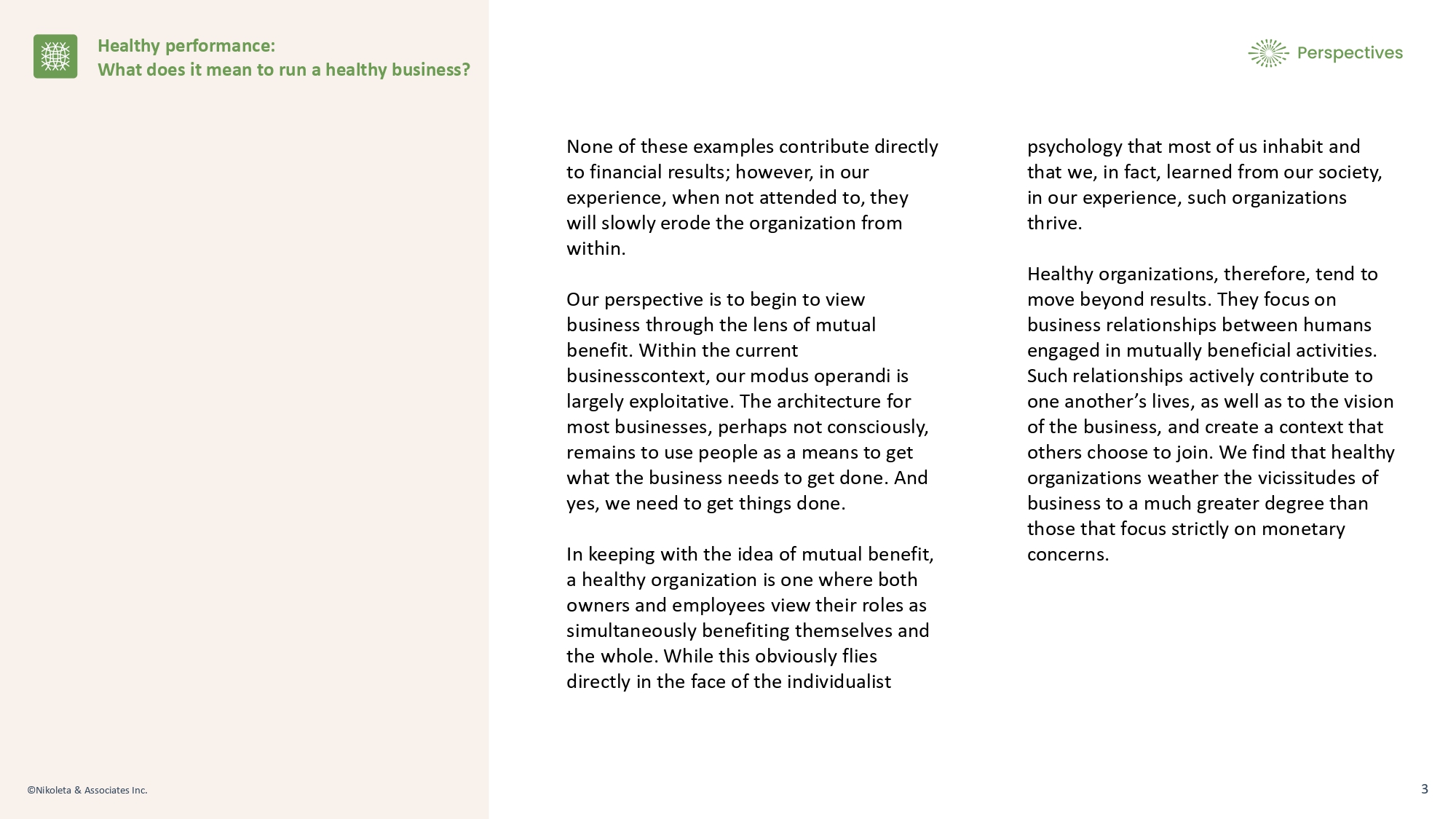Perspective
Healthy performance: What does it mean to run a healthy business?


In the business world, performance is a term often associated with financial gain. When an individual is said to perform well, it typically means that they make money for the business. This could mean anything from more sales to efficient cost-cutting measures.
Similarly, a healthy business tends to be viewed as one that earns more money than it spends. A hale and hearty business is one that is ‘in the black,’ while a weak, flagging one will be described as ‘in the red’. In common business parlance, therefore, when we combine the terms healthy and performance, we are talking exclusively about money.
The question as to whether or not the human beings involved in the business are healthy is (usually) immaterial unless their health can be directly correlated to a positive spike in financial results.
At Nikoleta and Associates, we take a deeper, broader view. In our work, we see many forms of unhealth within the workplace: teams that run entirely on sarcasm, bullying, or random fits of rage; unclear sexual dynamics between leaders and direct reports; and financial disparity, wherein the lesser-paid members are forced to endure hours and hours of commuting to be able to afford an apartment or house.
None of these examples contribute directly to financial results; however, in our experience, when not attended to, they will slowly erode the organization from within.
Our perspective is to begin to view business through the lens of mutual benefit. Within the current business context, our modus operandi is largely exploitative. The architecture for most businesses, perhaps not consciously, remains to use people as a means to get what the business needs to get done. And yes, we need to get things done.
In keeping with the idea of mutual benefit, a healthy organization is one where both owners and employees view their roles as simultaneously benefiting themselves and the whole. While this obviously flies directly in the face of the individualist psychology that most of us inhabit and that we, in fact, learned from our society, in our experience, such organizations thrive.
Healthy organizations, therefore, tend to move beyond results. They focus on business relationships between humans engaged in mutually beneficial activities. Such relationships actively contribute to one another’s lives, as well as to the vision of the business, and create a context that others choose to join. We find that healthy organizations weather the vicissitudes of business to a much greater degree than those that focus strictly on monetary concerns.
We often ask: Can relationships be open to engagement and redirection while still attending to the needs of the business? The answer, of course, is a resounding yes.
In most modern economies, business continues to have an enormous impact on the quality of life of their citizenry. Business decisions have far-reaching impacts, well beyond the immediate scope of the boardroom.
It comes down to a question which many ponder: Is the role of business purely to engineer profits for its owners, or does it have a larger function? Do we have an opportunity to shape business in service of society?
For us, humans are the means and the end.















